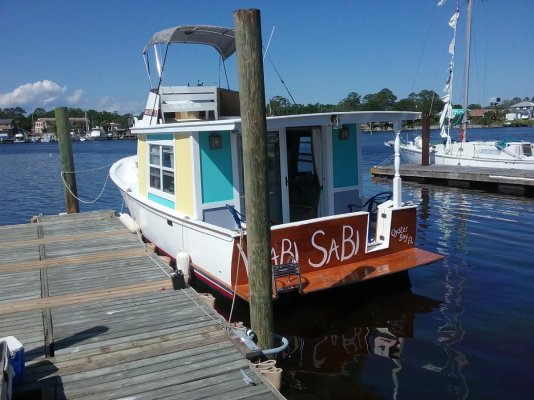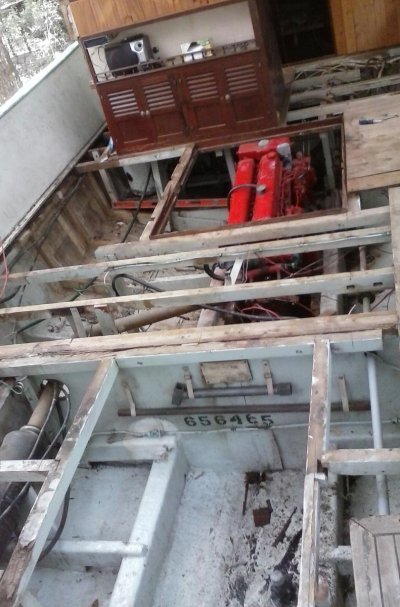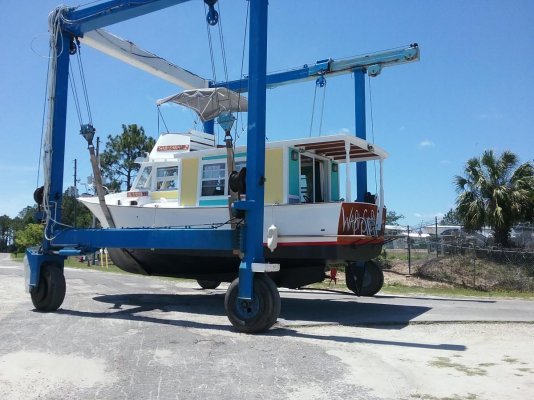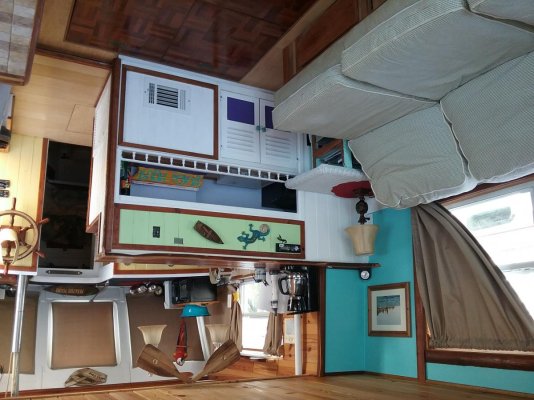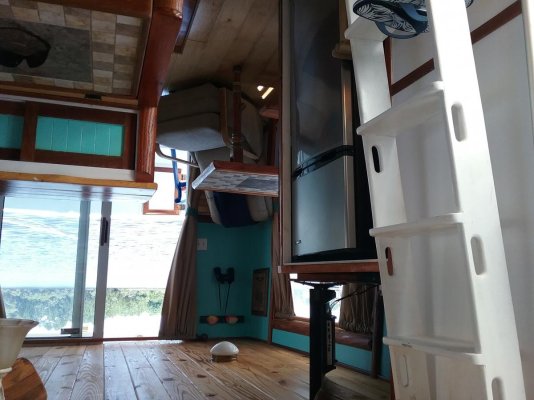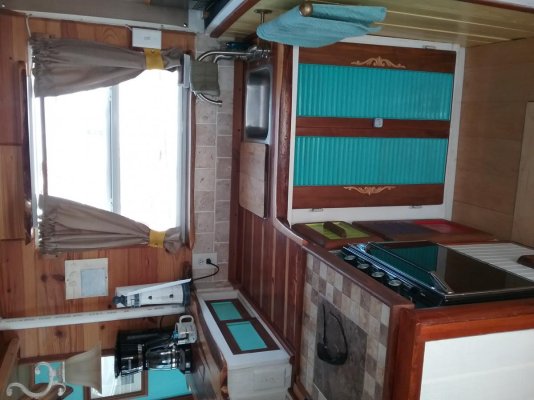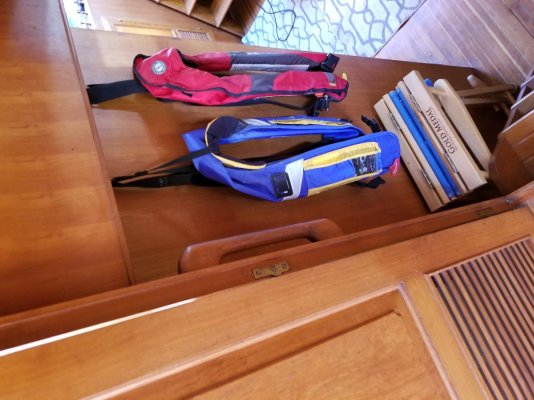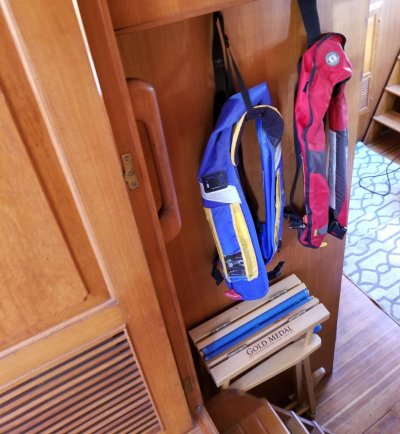boatmon
Member
- Joined
- Jun 20, 2010
- Messages
- 22
Ahoy all,
We have a 34' Marine Trader, single 120. The whole boat underwent a complete rebuild over the last 5 yrs and we just launched a couple of weeks ago.
My 120 seized the other day with about 3000hrs on it. I'm contemplating a complete rebuild of the 120 ($11K) vs buying a marinized rebuilt 90 ($7K). Looks like a fairly easy transplant. (I don't recall what the ratio is in my Paragon, which is fairly new.)
Has anyone repowered a 34' or 36' trawler from the original single 120 Lehman to the newer Lehman 90 4 cylinder?
I'm looking at the hp curve in my Lehman book comparing the 2 engines and it shows that when I run at 1600 rpm/ 7kts I'm at 70 hp. Would I burn less fuel with the 4 at 2000 rpm vs the 6 at 1600?
Would I also have to reprop if I made the transition?
There must be some smarter folks than me out here in virtual trawlerland that know this stuff!
Thanks! Capt Harry
We have a 34' Marine Trader, single 120. The whole boat underwent a complete rebuild over the last 5 yrs and we just launched a couple of weeks ago.
My 120 seized the other day with about 3000hrs on it. I'm contemplating a complete rebuild of the 120 ($11K) vs buying a marinized rebuilt 90 ($7K). Looks like a fairly easy transplant. (I don't recall what the ratio is in my Paragon, which is fairly new.)
Has anyone repowered a 34' or 36' trawler from the original single 120 Lehman to the newer Lehman 90 4 cylinder?
I'm looking at the hp curve in my Lehman book comparing the 2 engines and it shows that when I run at 1600 rpm/ 7kts I'm at 70 hp. Would I burn less fuel with the 4 at 2000 rpm vs the 6 at 1600?
Would I also have to reprop if I made the transition?
There must be some smarter folks than me out here in virtual trawlerland that know this stuff!
Thanks! Capt Harry

